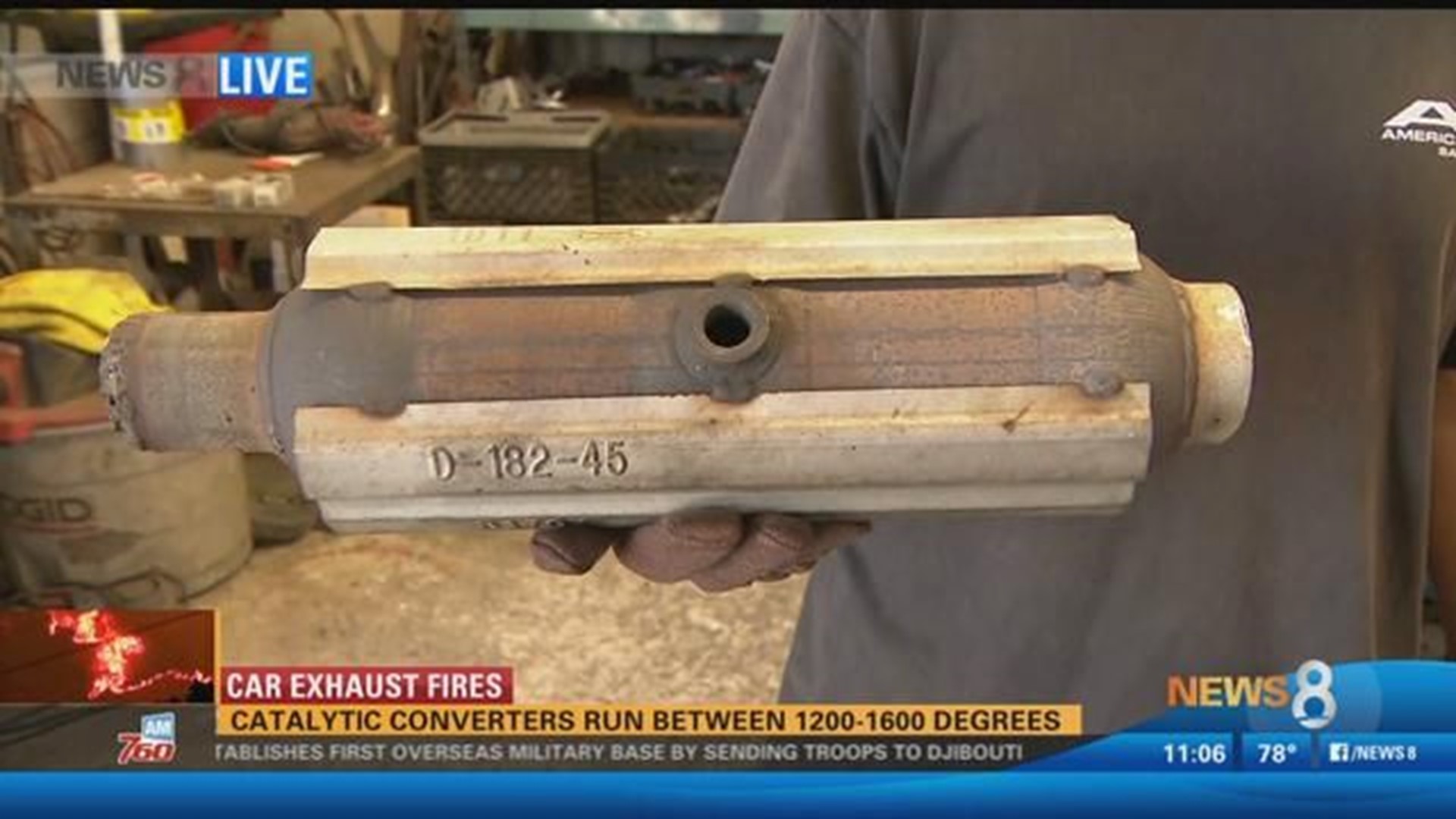SAN DIEGO (NEWS 8) - As crews gain a handle on the Jennings Fire in Flinn Springs, we’re reminded of one of the lesser-known dangers our cars present to the environment.
A car's catalytic converter can heat up to 1,200 degrees in a matter of minutes. If it comes into contact with flammable material, like dry grass, flames can erupt just like they did Tuesday afternoon off Interstate 8 near Old Highway 80.
Car's that use catalytic converters run on gas or diesel and are tied into the car's exhaust system to make the car more environmentally friendly.
"As the exhaust gasses travel through it [catalytic converter], and it heats up, it burns off the bad gasses and turns it into good gasses out of our tailpipes," said Bret Richardson, at American Muffler.
If a car is not running correctly, the catalytic converter can really heat up - causing trouble.
"These things can get overheated and can cause these biscuits to fracture and they break apart and it can clog the system to where your vehicle will not run at all. It can go through the system and shoot out of the tailpipe," said Richardson.
Fire investigators said that what happened Tuesday, igniting the Lake Jennings Fire, is the second catalytic converter caused fire in San Diego in less than two weeks.
Fire investigator Wayne Witney said the fire along State Route 52 in Tierrasanta on June 29th, was also caused by pieces from a catalytic converter.
Catalytic converter pieces from cars year round, but due to the weather in the region, it makes that situation even worse.
The weather conditions and state of vegetation during summer months make that fuel much more readily ignitable so we see fires more during summer months," said Witney.
How can drivers know if their catalytic converter has a problem?
In newer cars the check engine light should come on, and in older cars, drivers can hear when trouble is coming.
"You'll hear rattling and it will sound like rocks under your vehicle. Or, they will clog up and your car will have tough time making up a hill. You'll experience bad gas mileage," said Richardson.

